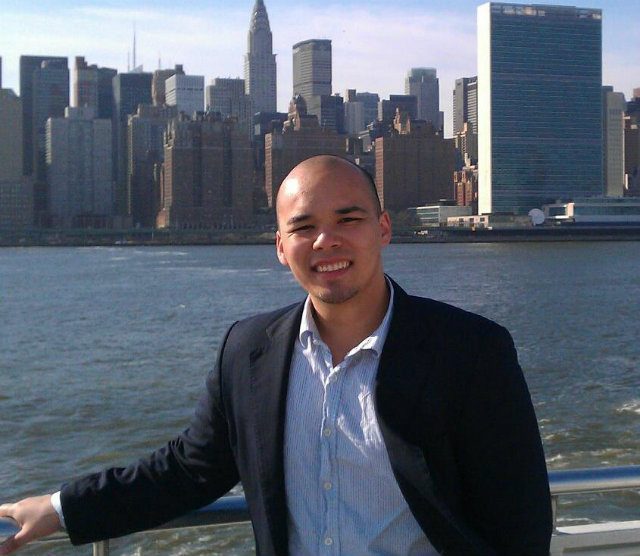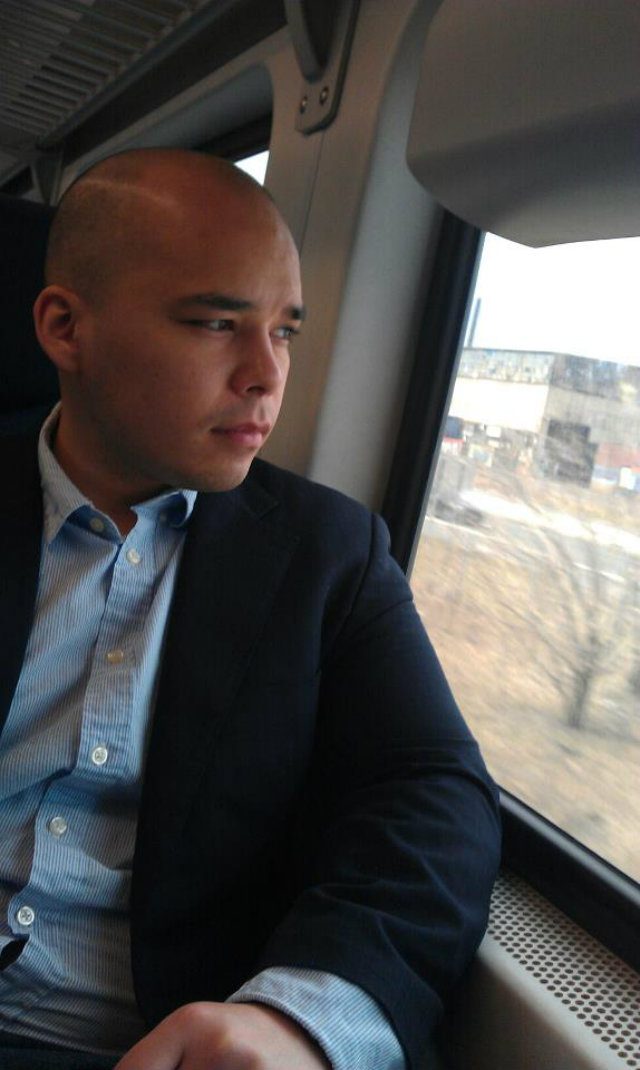SUMMARY
This is AI generated summarization, which may have errors. For context, always refer to the full article.

MANILA, Philippines – It’s hard to believe that 15 years have passed. Perhaps it’s because it’s best to imagine the sands in our individual hourglasses being infinite, or we don’t like to feel so distant from memories we’ve romanticized as being happier than they really were.
When I think back to that day, the only thing I can idealize is how, in spite of my feelings on that day, the world kept turning. It was a while before I could feel reassured of even that small staple of regularity. On the morning of September 11, 2001, a total of 2,996 lives were lost due to the largest terror attack before or since on American soil.
For those who lived on, something less tangible than life was lost. That’s the story I want to tell from my perspective.
I was 14 at the time and lived on Mountain Road in Union City, New Jersey on a hill overlooking Manhattan’s financial district. Our apartment was bare-bones simple but I felt lucky to have a view of the Twin Towers from my balcony. I spent many nights out there with my boom box radio listening to CDs and watching the lights go out each night on the Towers. I just assumed they’d light up every night for the rest of time.
I remember watching the Sonic the Hedgehog cartoons on UPN 9 while waiting for the school bus, and when it didn’t come I walked to the nearby Board of Education to inquire about why I wasn’t picked up. Everyone in the basement office at Emerson High School was fixated on the television as news broke of an airplane crashing into one of the World Trade Center towers.
I rushed back home, no longer caring about school for the day. I walked out onto the balcony and saw that, by this time, a second plane had struck the other tower. I then thought of my mother, who worked right in the shadow of the World Trade Center at Cafe World at 50 Trinity Place. I peeked into her room and was relieved to find her there, still sleeping. I guess she didn’t have work that day. I took one last look from the balcony, the last time I’d see the Towers standing.
I jumped on a mini van to to my sanctuary, the Cliffside Park Public Library. On the way there the driver stopped suddenly as the Spanish language radio station broadcasted hysterical screams which I assumed were from a newscast. The driver told me he was canceling his trip and I disembarked. Walking past Lincoln Elementary School on Anderson Avenue in Fairview, NJ, I heard over the speakers through a woman’s tearful voice the news that the towers had collapsed.

I went home shortly after and woke my mother, informing her of what had happened. She became disconsolate and left down the hill to Hoboken to check on coworkers who were covered from head to toe in ash. That left me alone, at home, to look at the dust cloud which settled over the Hudson River, and a void where just earlier the two tallest structures in the New York skyline stood.
Darkness crept in as the night approached, as if the sun had set on a period of American life. Us 90s kids had seen war and mass death as something that happened in far away countries. The major news stories I had known centered around presidential sex scandals and the Yankees winning the World Series. Life suddenly became very real in a way I wasn’t able to comprehend.
I wandered the streets that night, afraid to be alone. I recall hearing someone play Only Time by Enya through a radio in their window, a sound out of place in a Hispanic neighborhood known more for the blaring Bachata music of summertime parties. While U2’s Walk On and Superman by Five for Fighting became popular anthems for dealing with the tragedy, the Enya song summed up my feeling of emptiness.
“Who can say where the road goes, where the day flows, only time?”
I sank into a long depression, and the burning smell which wafted across the river caused my asthma to act up. There were few feel good stories coming out of this tragedy, most centered on the bravery of the police and fire personnel who rushed up the stairs and never came out. There were few survivors from the collapsed towers. The stories of abandoned cars at parking lots were haunting.
While all of the television channels replayed the video of the planes striking the towers, I found an escape by listening to the Howard Stern Show on 92.3 K Rock. He remained the same old asshole, which I found strangely comforting.
What I sensed that day, and has proven true, was that this conflict would not be a short one. Terrorism would hang over life as an American teenager like that burning smell which choked my lungs. A perpetual state of war with no end in sight.
When I think of what was stolen from me that day, that right I felt irrevocable to grow up with reckless optimism, the view I had from my balcony, I clench my teeth. To me, life is classified by what happened before 9/11 and everything since then. If there was a vendor who sold bottles of life pre-9/11, I’d give all of my earthly possessions for even just one.
What I’ve come to appreciate in the years since is the value of the small things, the time spent with family, the crisp smell of autumn air, a walk in the park with a loved one. Just like the lights of the Twin Towers I took for granted, we don’t know when the good times may come to an end. – Rappler.com
Ryan Songalia is the sports editor of Rappler, a member of the Boxing Writers Association of America (BWAA) and a contributor to The Ring magazine. He can be reached at ryan.songalia@rappler.com. Follow him on Twitter: @RyanSongalia.
Add a comment
How does this make you feel?
There are no comments yet. Add your comment to start the conversation.